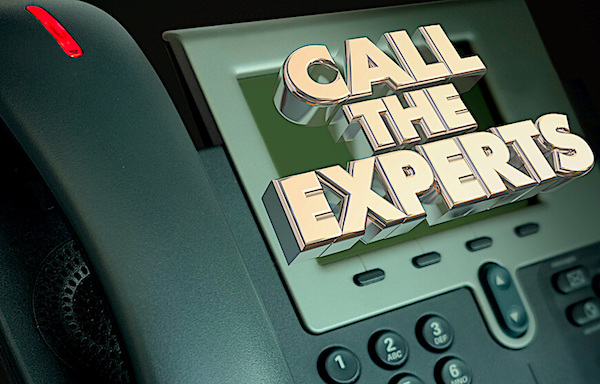 So you’ve experienced a problem that may warrant an insurance claim. When should you tell your insurance company? Should you tell your insurance company? Today, we’re answering all your questions about when to call your insurance company to make an insurance claim after experiencing a loss for a home, business, commercial property or personal property.
So you’ve experienced a problem that may warrant an insurance claim. When should you tell your insurance company? Should you tell your insurance company? Today, we’re answering all your questions about when to call your insurance company to make an insurance claim after experiencing a loss for a home, business, commercial property or personal property.
Generally Speaking, You Want to Make a Claim As Soon As Possible
Typically, it’s in your best interest to make a claim as soon as possible. The sooner you make a claim, the sooner you can start the repair, remediation, and recovery process.
However, there are certain steps you may wish to take before making a claim. First, you’ll want to take immediate steps to mitigate the loss. Next, you’ll want to decide whether or not you want to make a claim at all.
Step 1: Do What You Can to Mitigate the Loss
First, it’s important to note that you have a responsibility to mitigate the loss on your property damage claim. If your home has recently experienced flooding, fire, or roof damage from a storm, then you have a responsibility to limit this damage wherever possible. Put a tarp over your roof after storm damage, for example, or start draining water in your basement after flooding.
Insurance companies expect you to mitigate losses using the resources available to you and the emergency repairs or tasks within your control. You may not be an insurance expert or understand much of your insurance policy, but it is important to know the policy conditions under your duties after a loss. Every insurance policy contract contains this and includes preventing further damages along with preserving evidence of the loss (meaning don't dispose of damaged items). You can spend money to mitigate losses during this step, and the insurance company will typically reimburse you for any reasonable expenses. It is in everyone’s best interest to prevent further damages and failing to do so can result in losses not being covered.
Take steps to prevent further damage and ensure your immediate safety. If your house is flooded, for example, then turn off the electricity in that area of the house.
If a criminal act such as theft or burglary has taken place – like a break-and-enter – then that act needs to be reported to the police. Call 9-1-1.
Step 2: Decide Whether Or Not to Make a Claim
The next step is to decide whether or not you want to make a claim. Your business owners or homeowners insurance is one of those insurance policies that you hope to never use but can be a lifesaver when you need to use it.
First, appraise the situation. Do a visual assessment of the damages. Document everything using your phone or a digital camera. Even if you don’t intend to make a claim, it’s always helpful to have visual proof of the damages.
Establish an inventory of all of the items and property that have been lost, damaged, or stolen. Make detailed notes about how, where, and why the damage occurred.
Next, consider the cost of making a claim. Estimate how much it will cost to repair or replace any of your damaged or stolen property. Remember that you need to pay a deductible, so factor that into the cost. If the incident has caused an estimated $1,000 worth of damage, and your deductible is $1,000, then it may not be worth it to file a claim.
 If you’re unsure how much it will cost to repair the damage to a home or building, consider contacting a public adjuster or professional contractor to assess the damages. Public insurance adjusters and contractors will often provide free assessments. This information can help you decide whether or not it’s worth it to file a claim.
If you’re unsure how much it will cost to repair the damage to a home or building, consider contacting a public adjuster or professional contractor to assess the damages. Public insurance adjusters and contractors will often provide free assessments. This information can help you decide whether or not it’s worth it to file a claim.
Note: In cases where you have a large claim estimated at $100,000 or more it is highly recommended to contact a Public Adjuster first. Large claims adjusters from the insurance company are typically the best of the best, and their specialties often lie in overwhelming and confusing the client.
If you’ve filed a claim on your homeowners, business owners, or commercial property insurance policy in the past, then you may want to more carefully consider before making a new claim. Policyholders who make multiple claims in a 5 or 7 year span may be seen as higher-risk, which could make it difficult (or more expensive) to renew your policy.
Of course, if it’s a serious incident involving more than $10,000 in damages, then it’s almost always in your best interest to make a claim – regardless of how many previous claims you’ve made.
Step 3a: Contact Your Insurance Company Immediately
 When should you call your insurance company to make a property damage claim or homeowners insurance claim? You should call your insurance company immediately after you’ve decided to make a claim. Keep in mind that the phone call is more than likely being recorded and insurance companies are not charity organizations that just want to give you money after a loss. Only state facts that you are sure of and don’t make statements of assumptions.
When should you call your insurance company to make a property damage claim or homeowners insurance claim? You should call your insurance company immediately after you’ve decided to make a claim. Keep in mind that the phone call is more than likely being recorded and insurance companies are not charity organizations that just want to give you money after a loss. Only state facts that you are sure of and don’t make statements of assumptions.
The sooner you contact your insurance company, the sooner they can send an adjuster to your location and the sooner they can start assessing the damage. The sooner you can get started on repairs and recovery, the better off you’ll be. Be aware: Insurance contracts contain proof of loss conditions that detail the time frame in which you must notify the insurance company of a claim after a loss, and in many cases, submit proof of loss forms or documentation within a specified time frame.
Step 3b: Consider Contacting a Public Adjuster
 The days and weeks following a disaster, break-in, or other incident resulting in loss can be stressful. Consider hiring a public adjuster prior to making your insurance claim. A public adjuster (which in most states must be licensed) is an insurance specialist who can provide assistance and guidance on all aspects throughout the claims process. He or she will handle assessing loss and damages, communicating with the insurance company on your behalf, negotiation with your insurance company for maximum coverage, and will stick with you for each step of the claims process.
The days and weeks following a disaster, break-in, or other incident resulting in loss can be stressful. Consider hiring a public adjuster prior to making your insurance claim. A public adjuster (which in most states must be licensed) is an insurance specialist who can provide assistance and guidance on all aspects throughout the claims process. He or she will handle assessing loss and damages, communicating with the insurance company on your behalf, negotiation with your insurance company for maximum coverage, and will stick with you for each step of the claims process.
Some people hire a public adjuster before they begin their insurance claim. A good public adjuster can walk you through the entire claims process and ensure that the proper steps are taken while helping to prevent making mistakes that may affect your insurance claim. The adjuster can alleviate much of the burden during a stressful time, using his or her professional expertise to maximize your compensation.
Other people hire a public adjuster after they’ve already begun an insurance claim. You may choose to hire a public adjuster if the insurance company is dragging its feet, denying coverage for a claim, presenting a low or unreasonable offer, showing signs of possible bad faith insurance tactics, or unfair claims settlement practices.
Conclusion: Contact your Insurance Company or a Public Adjuster ASAP
Once you’ve decided to make a claim, it’s important that you contact an insurance company or a public adjuster as soon as possible. With larger claims, timing can be crucial. Your insurance company has staff available 24/7 to attend to your requests, and many public insurance adjusters are also available 24 hours a day. The sooner you contact the insurance company, the less likely you are to experience complications with your claim.
Originally Published Here: When Should You Call Your Insurance Company To Make An Insurance Claim?
No comments:
Post a Comment